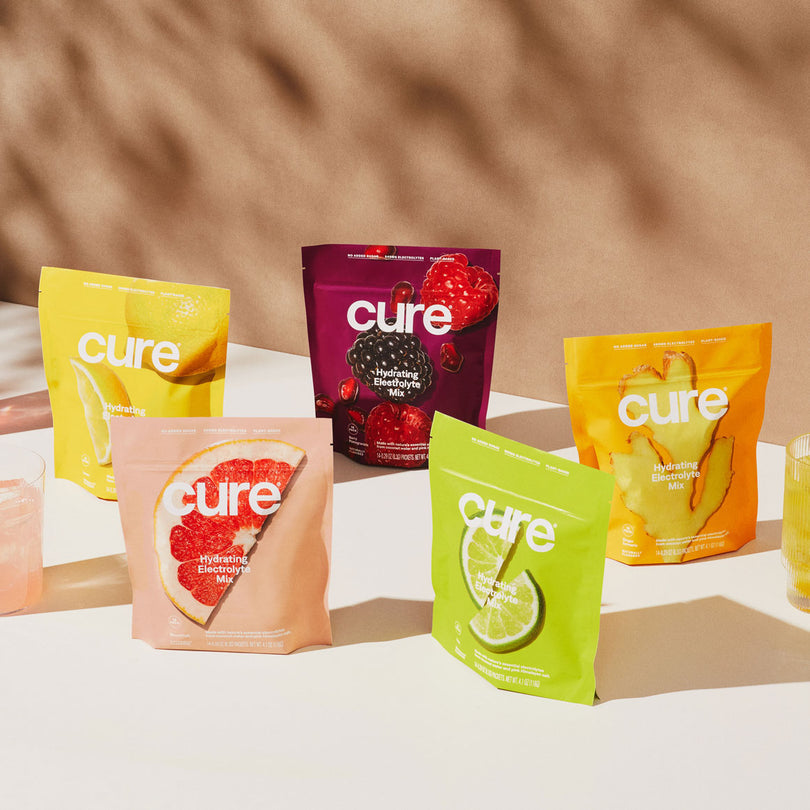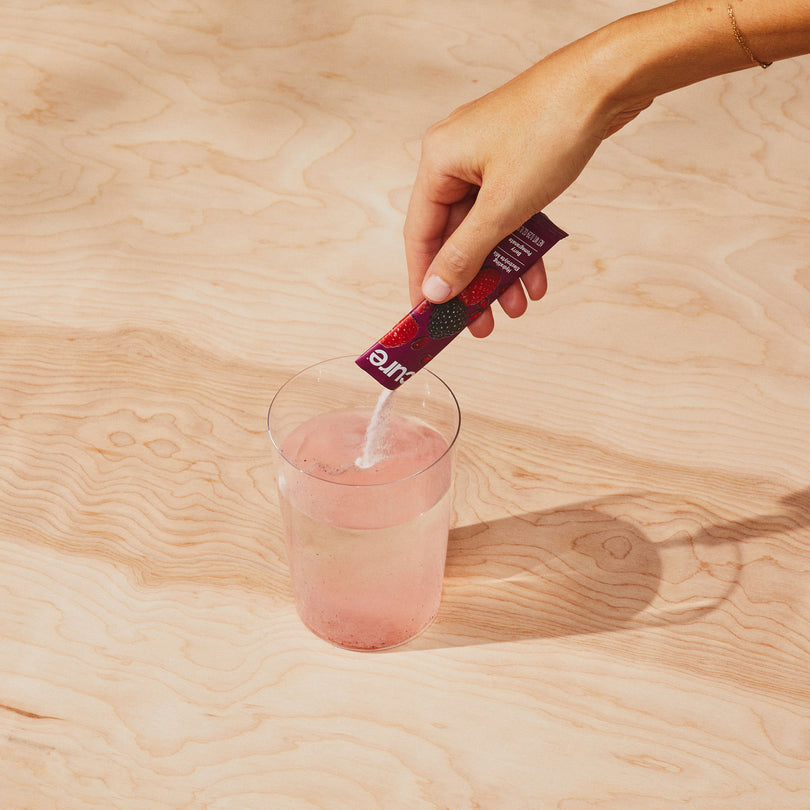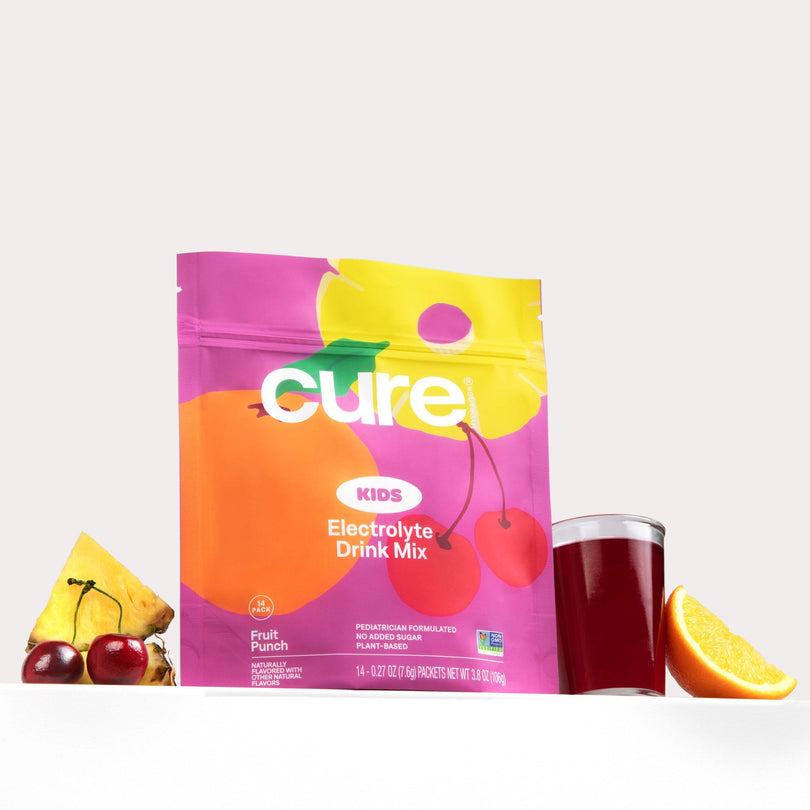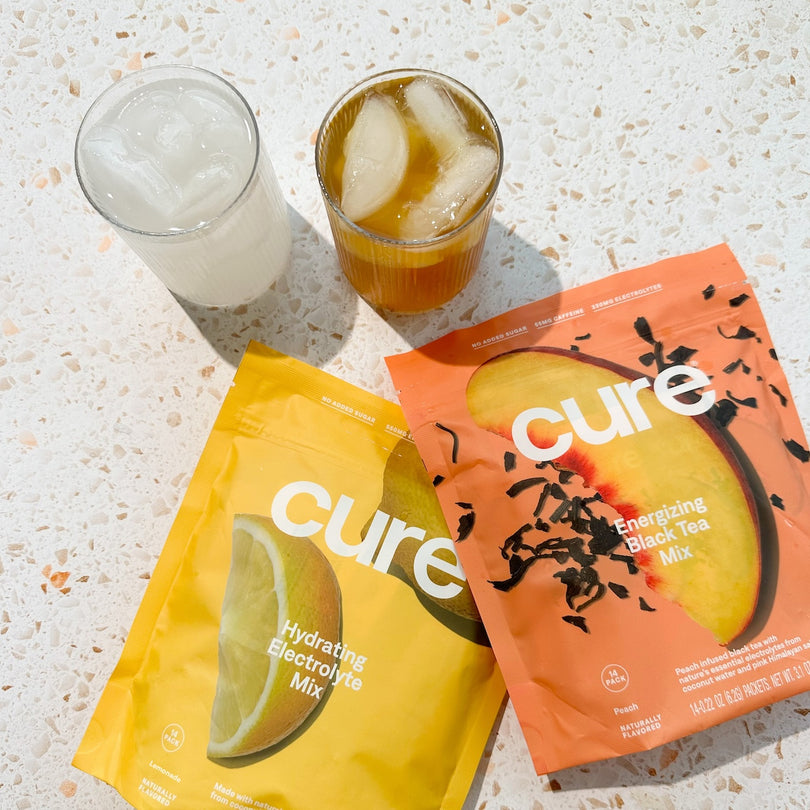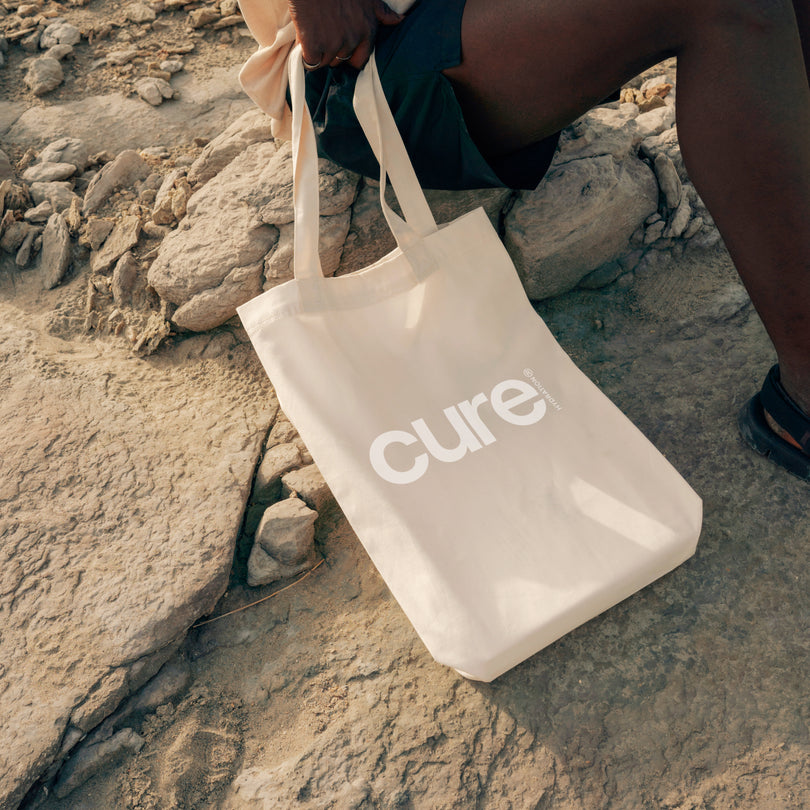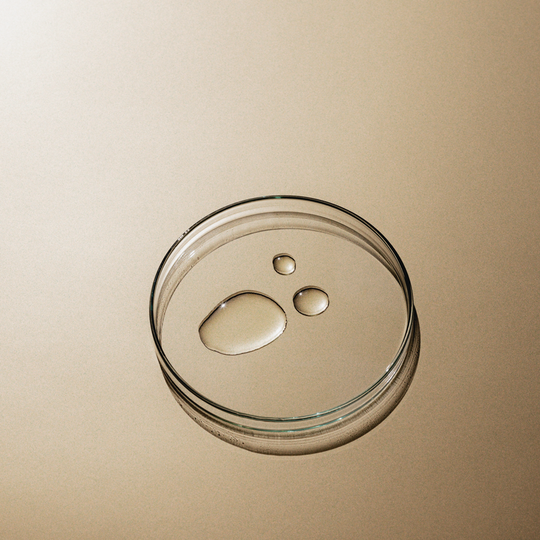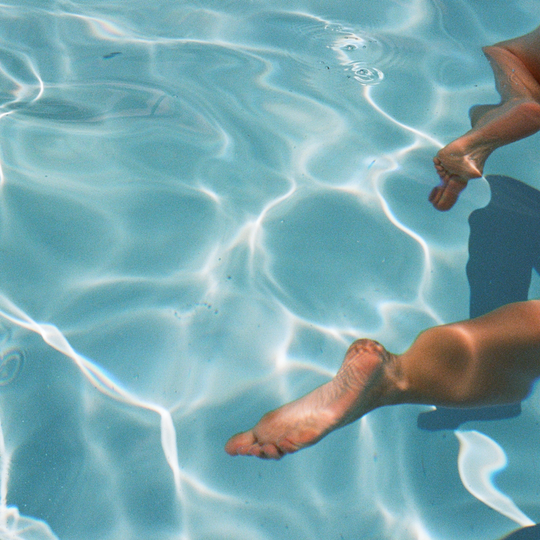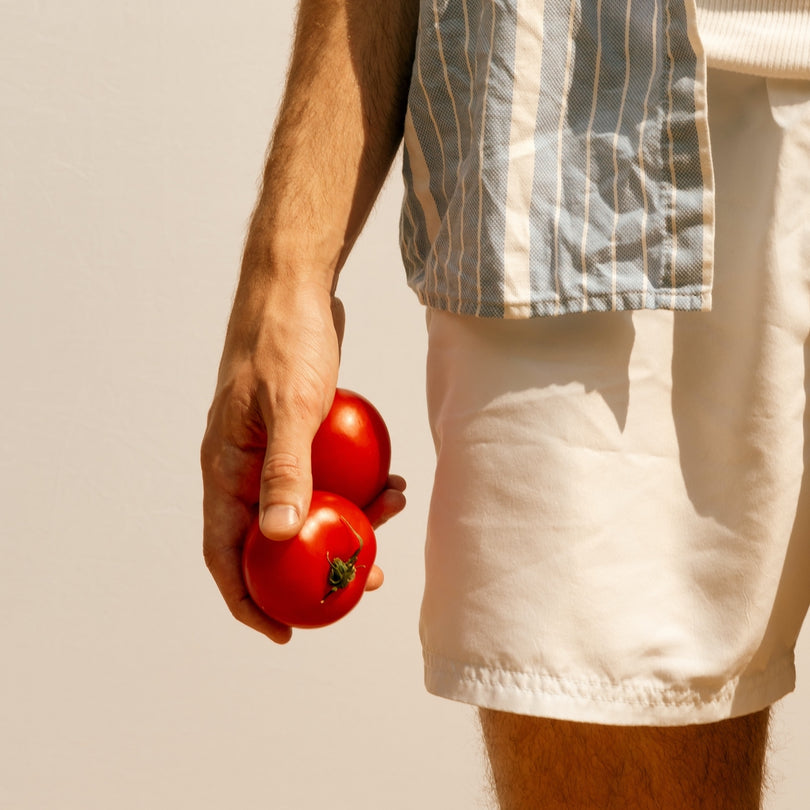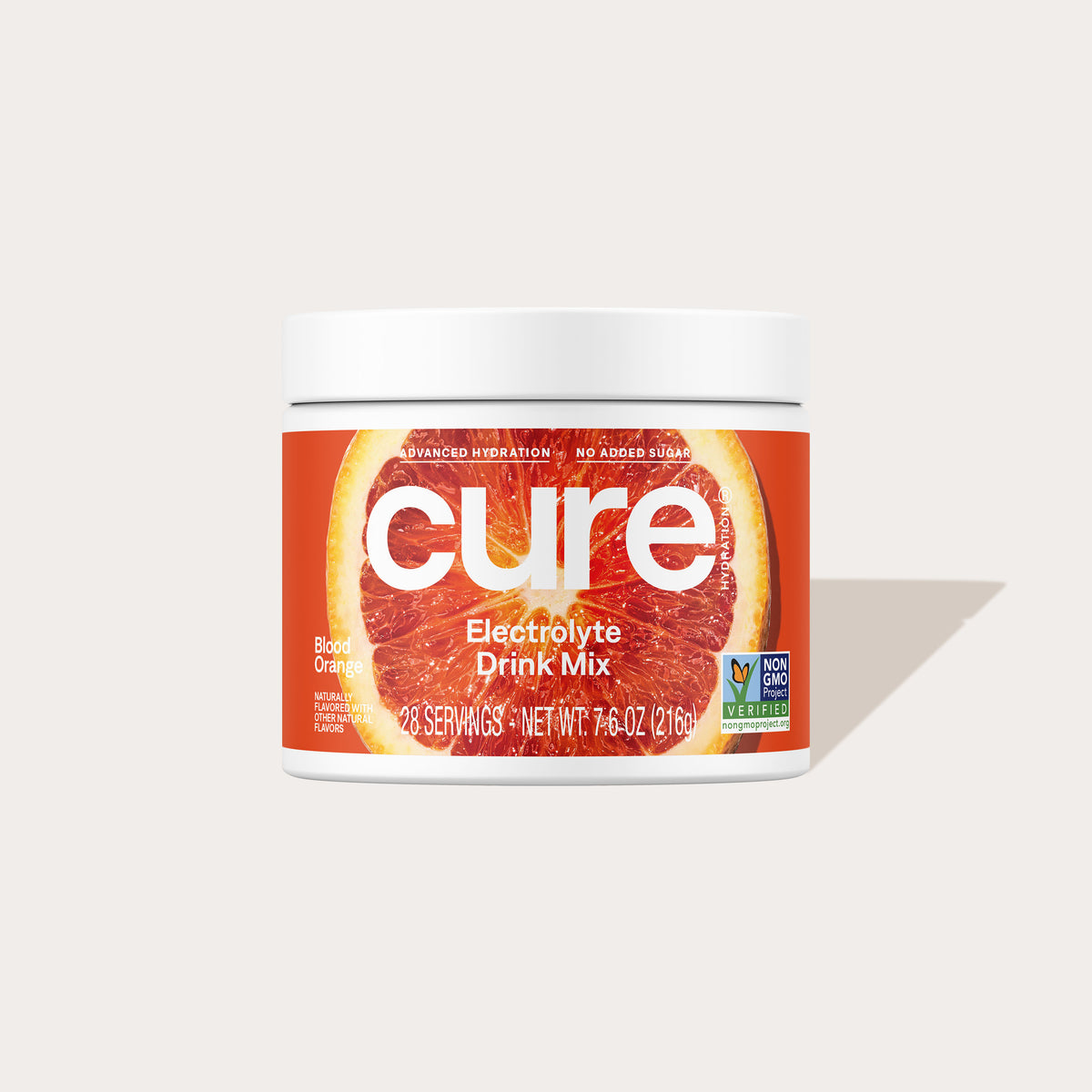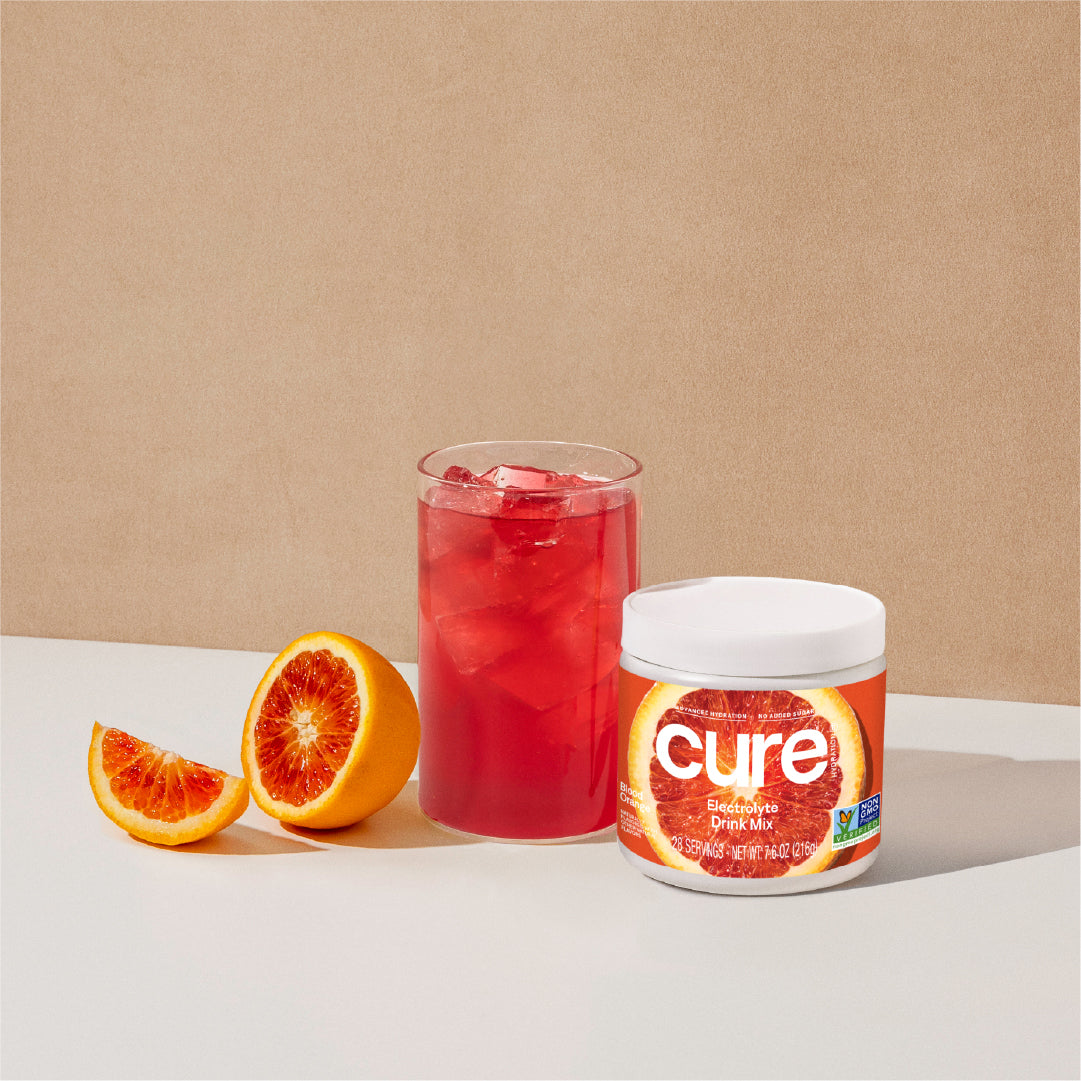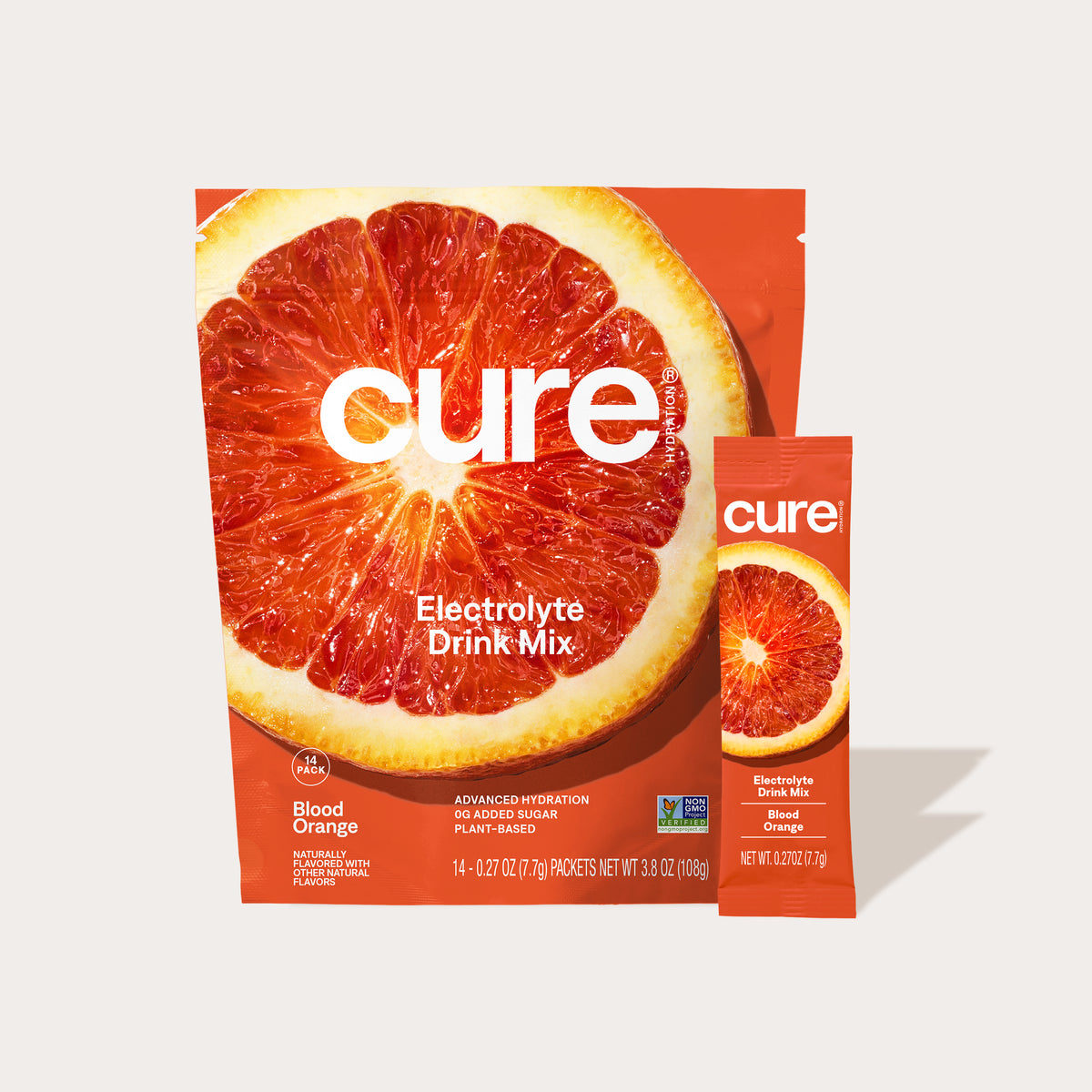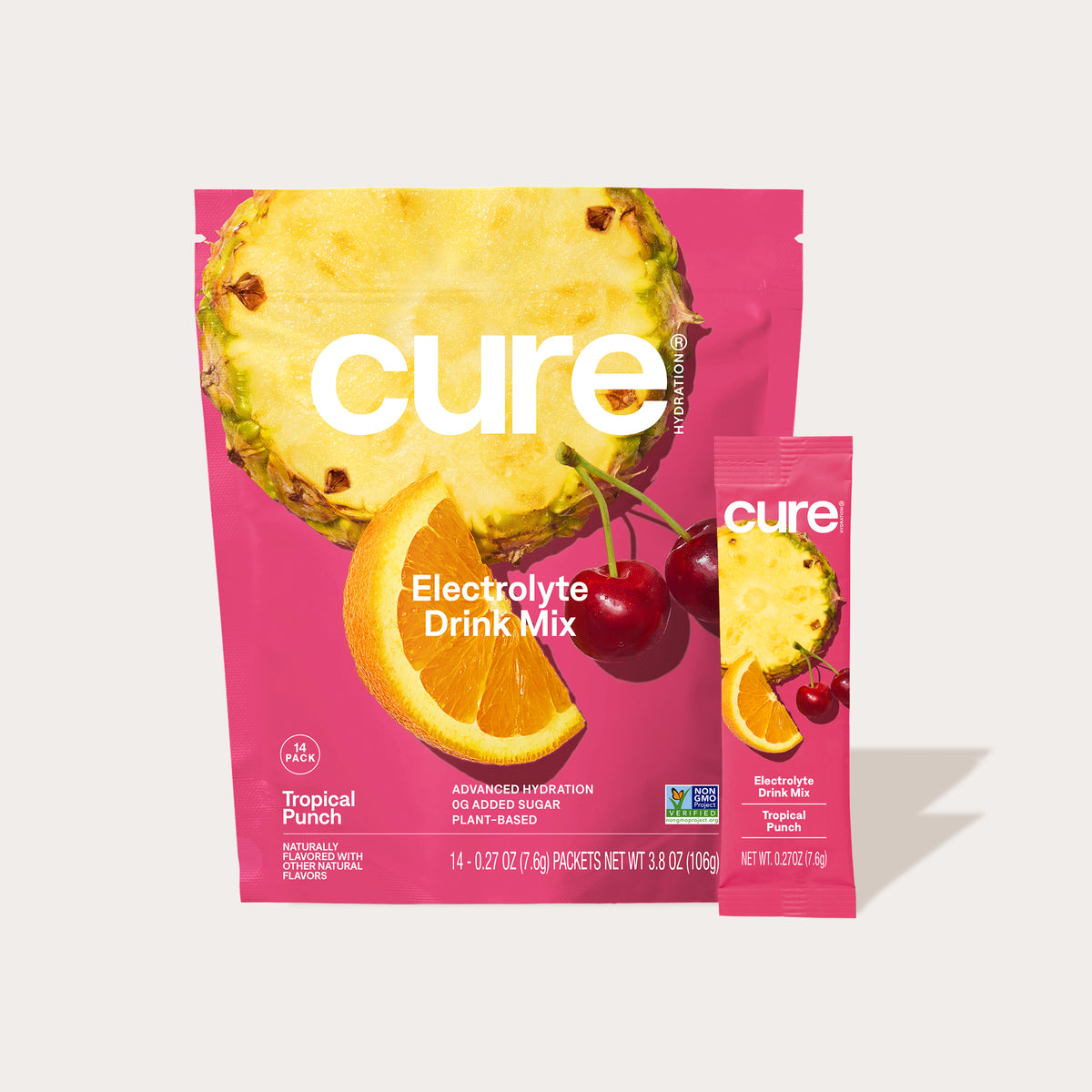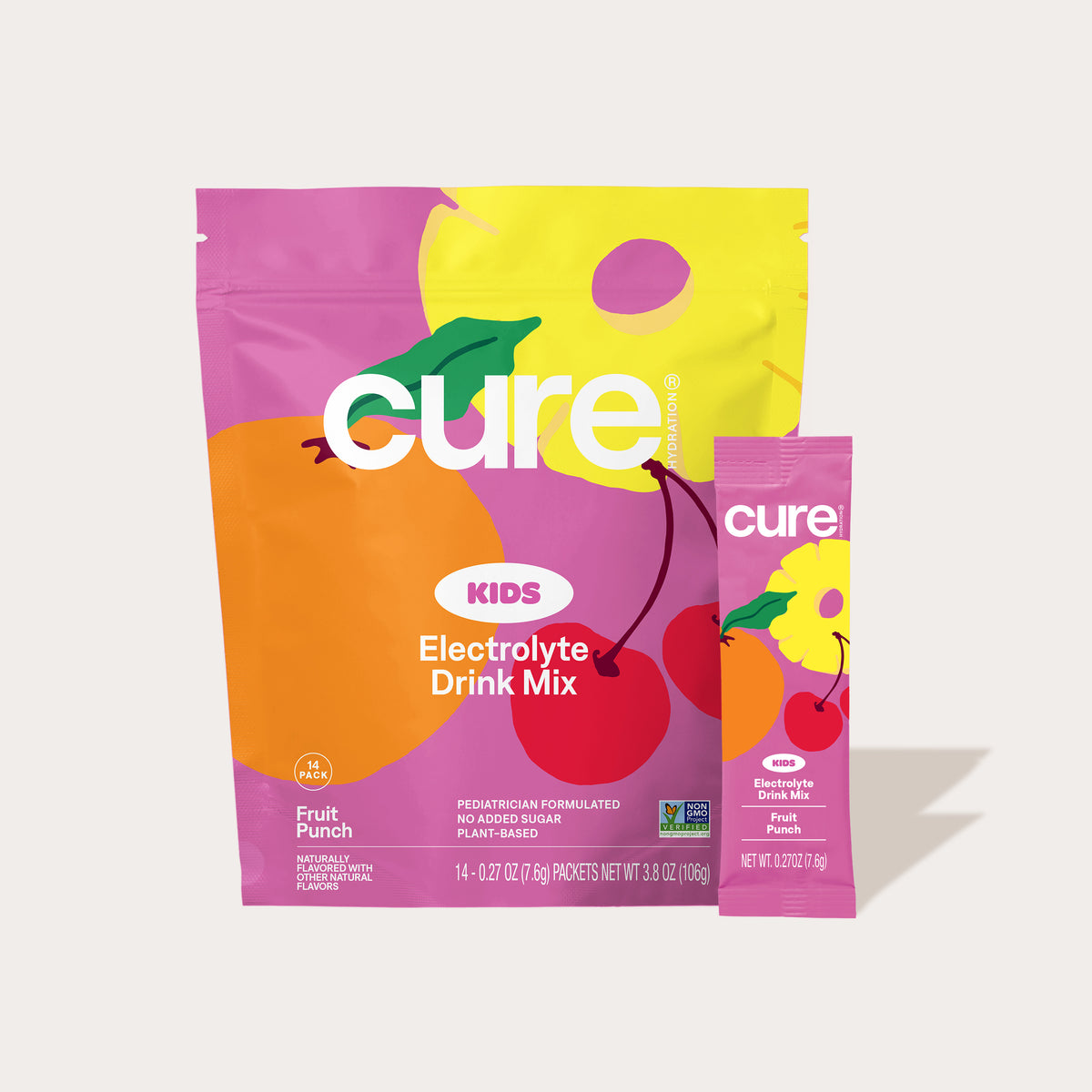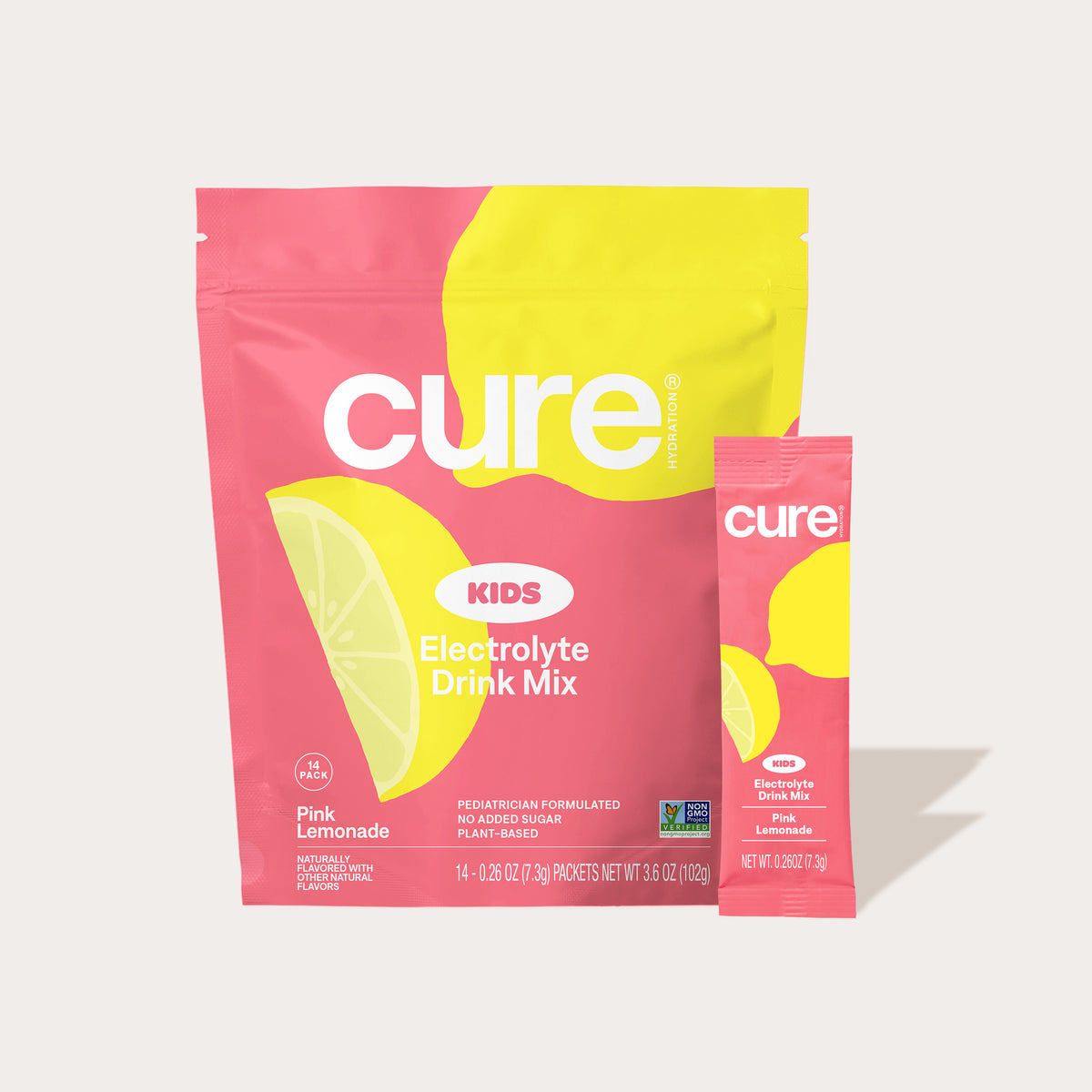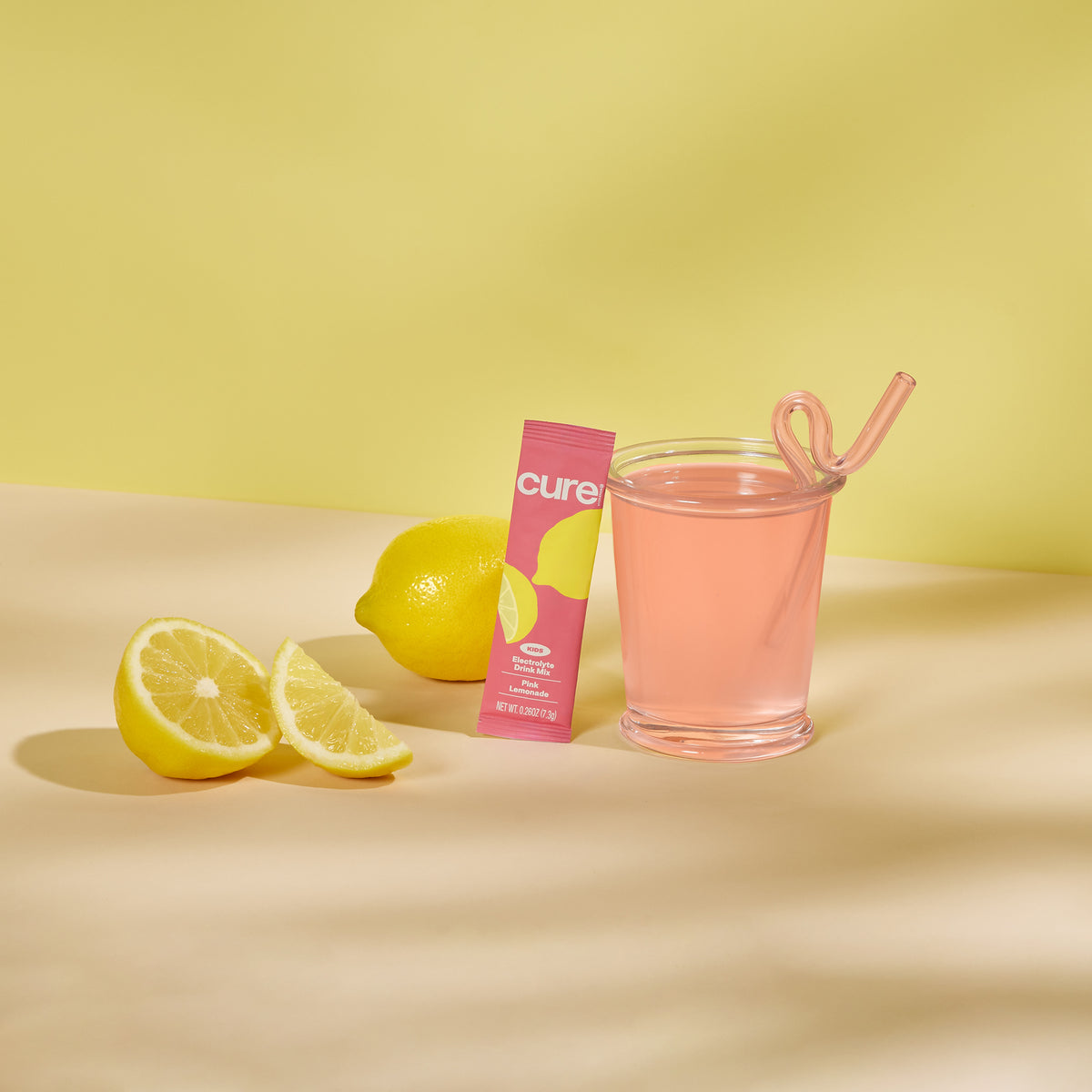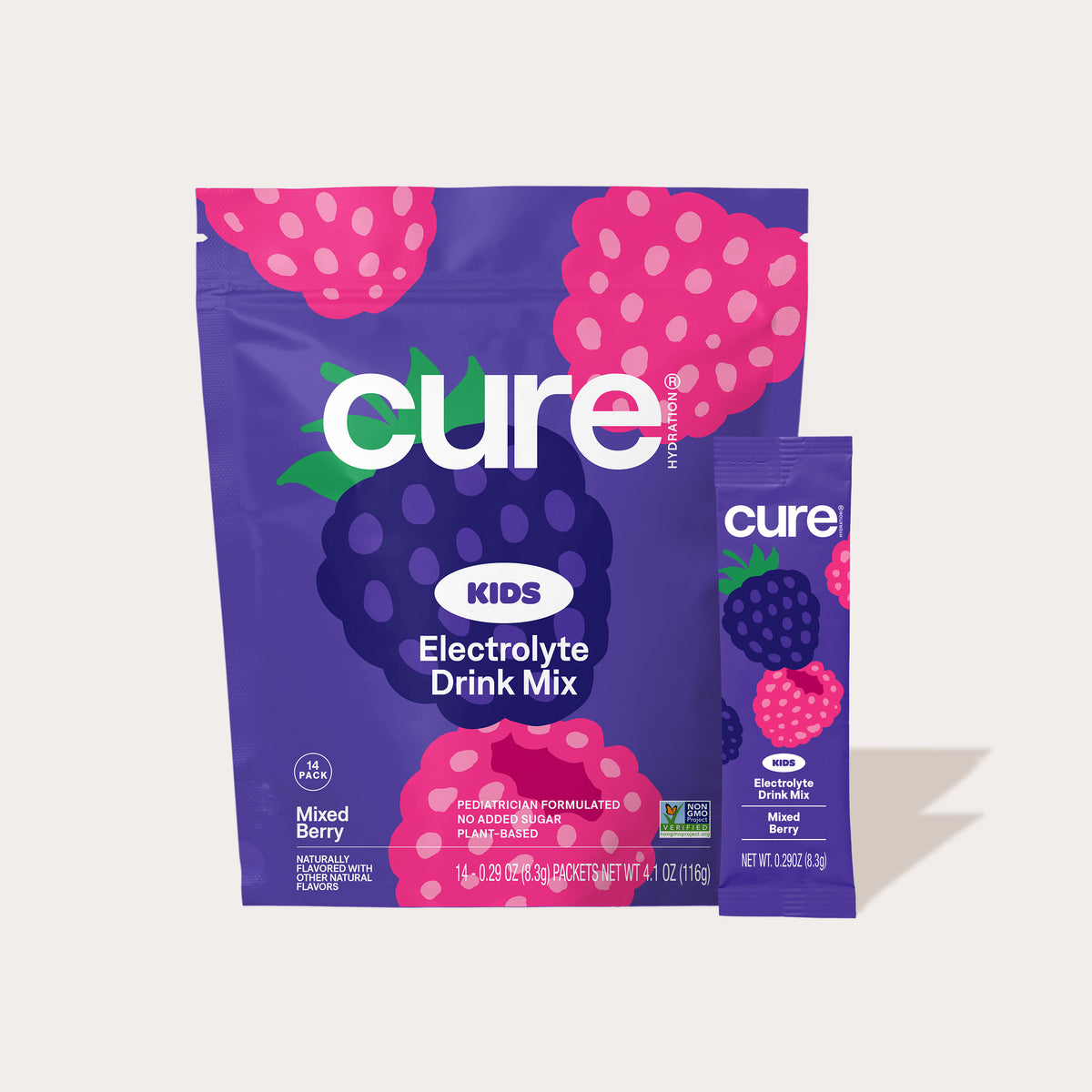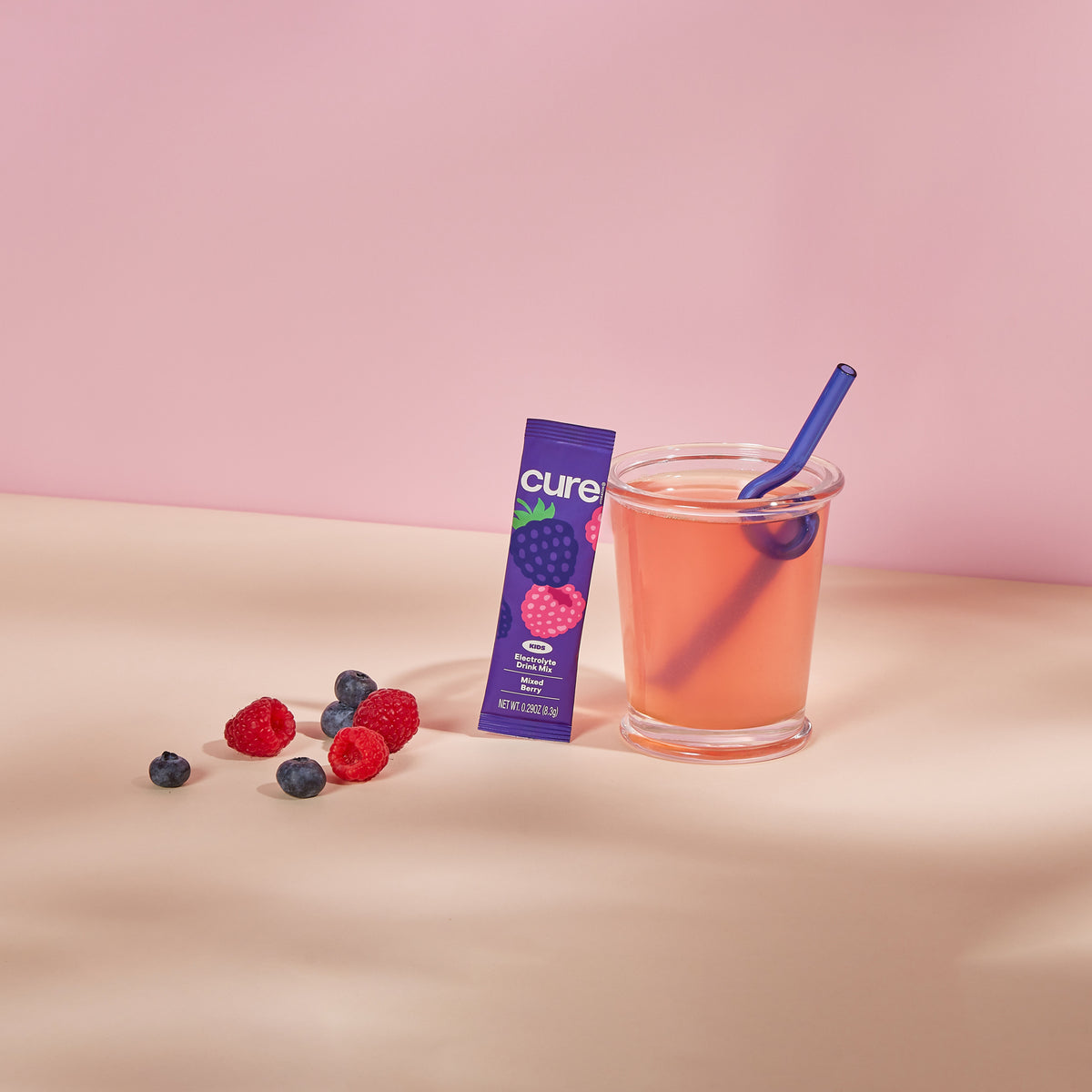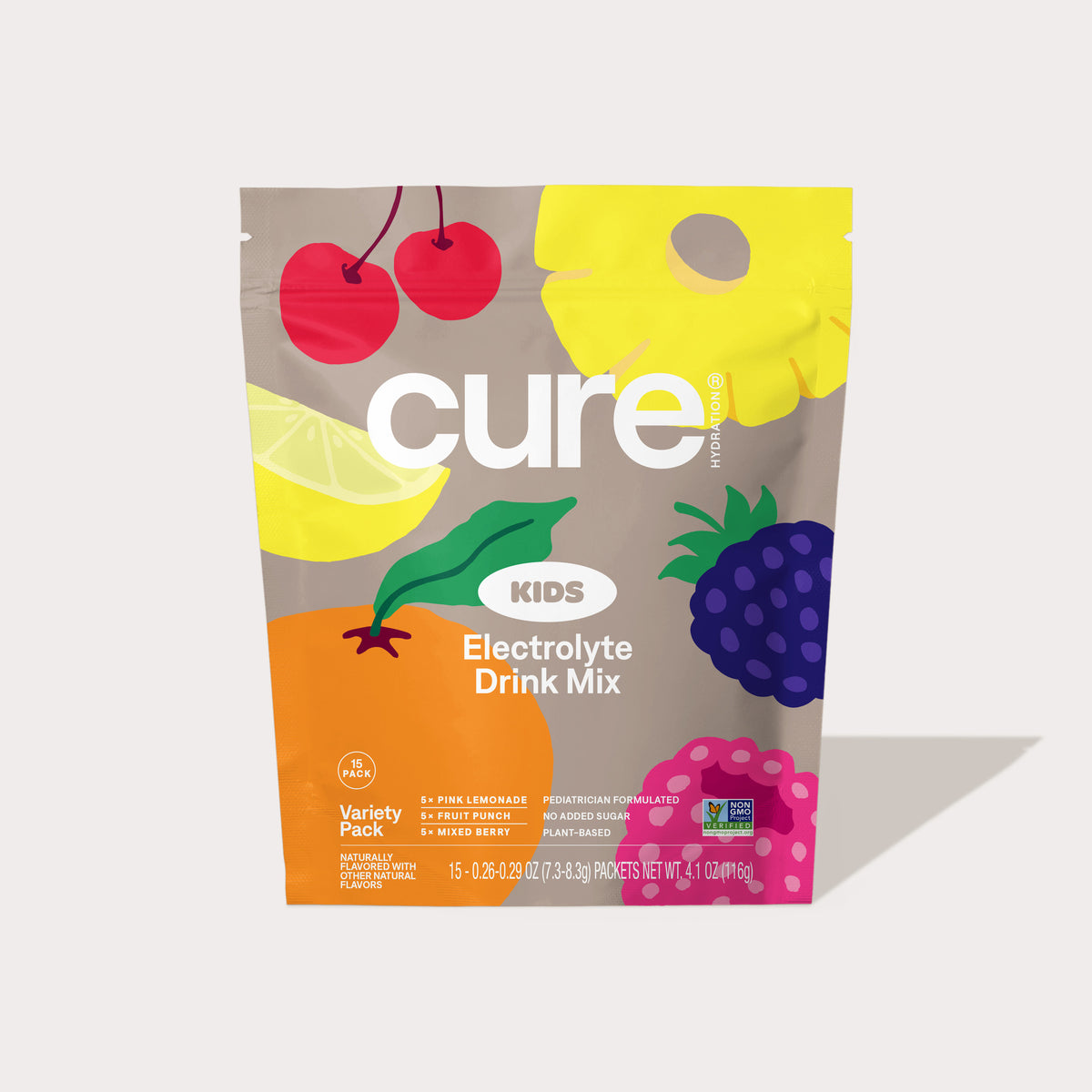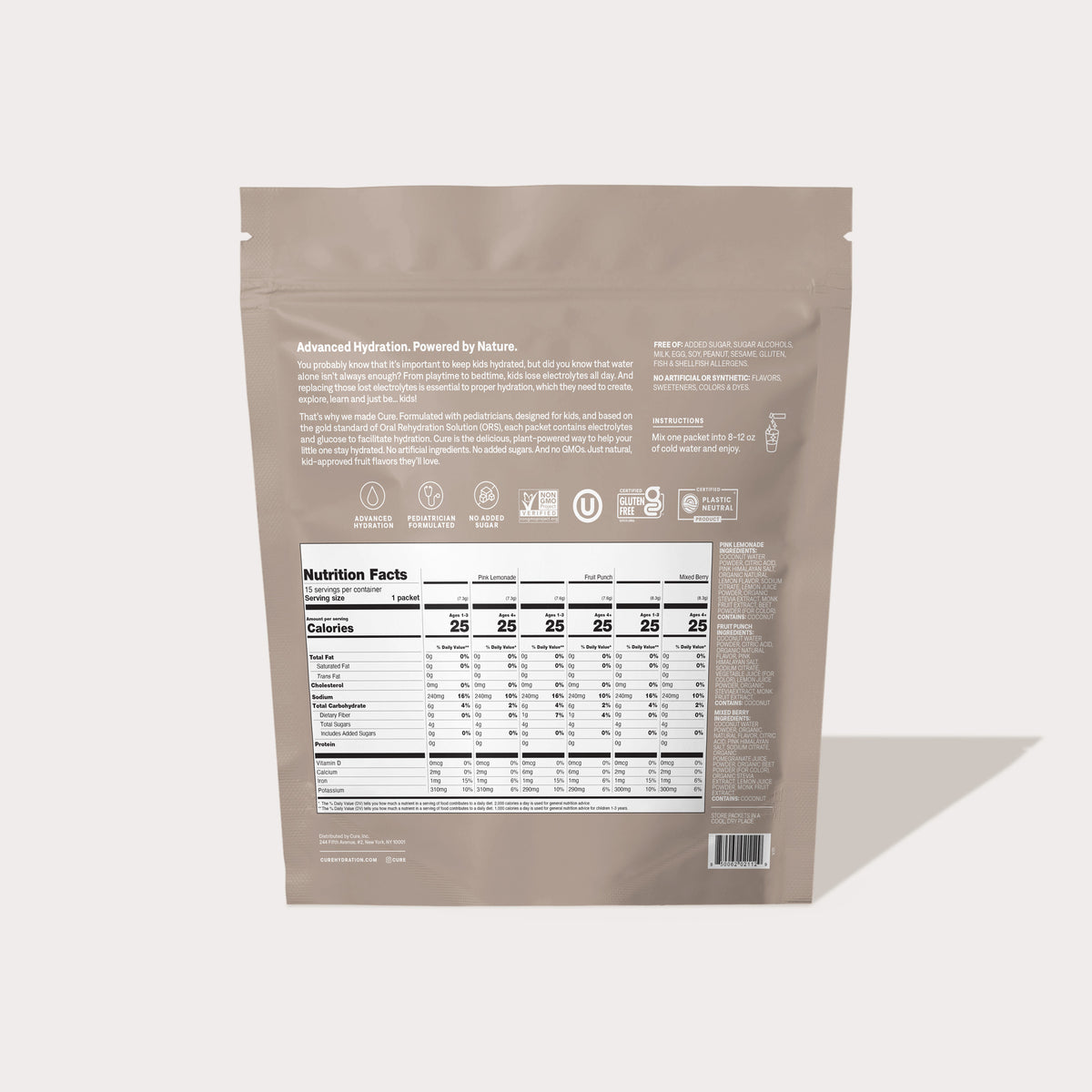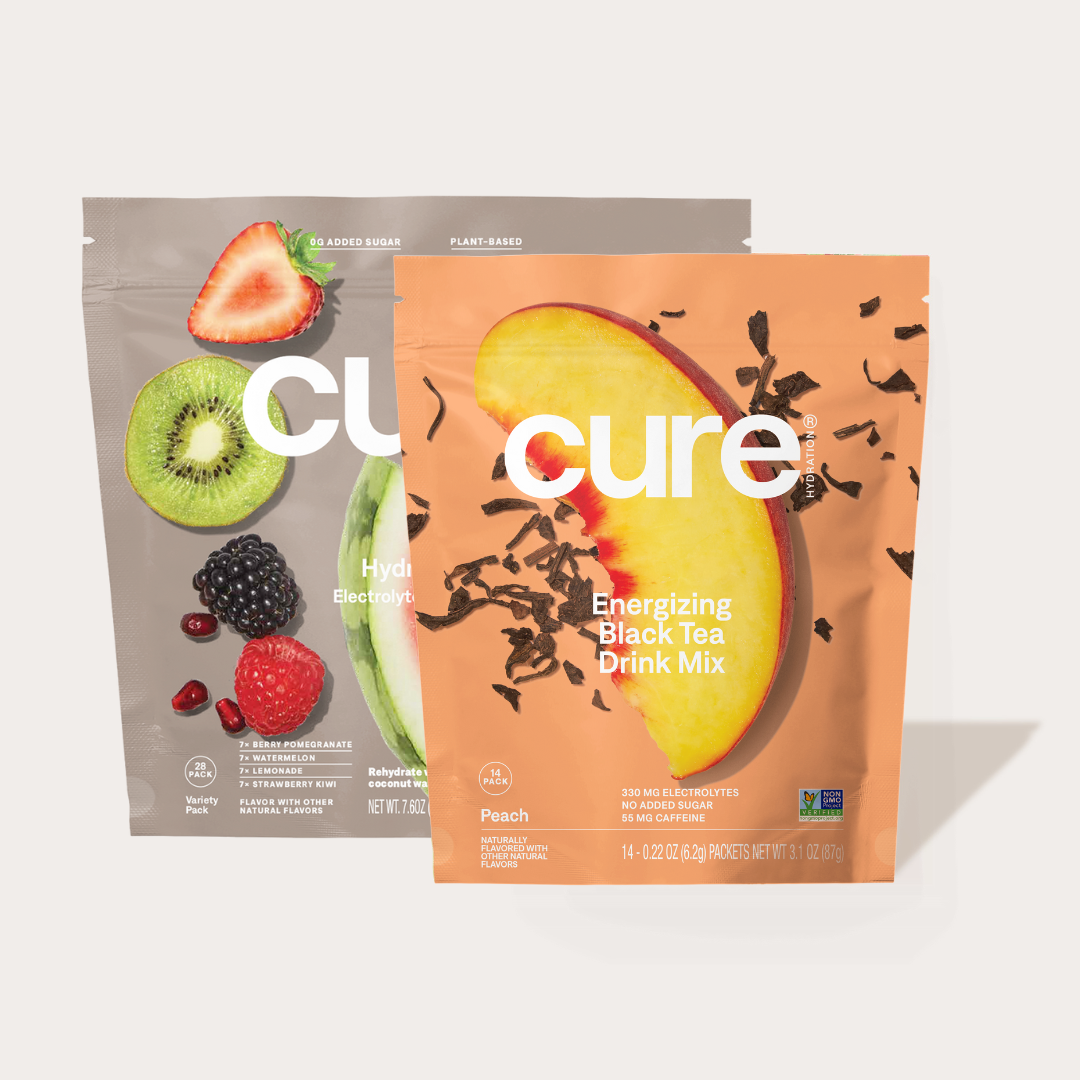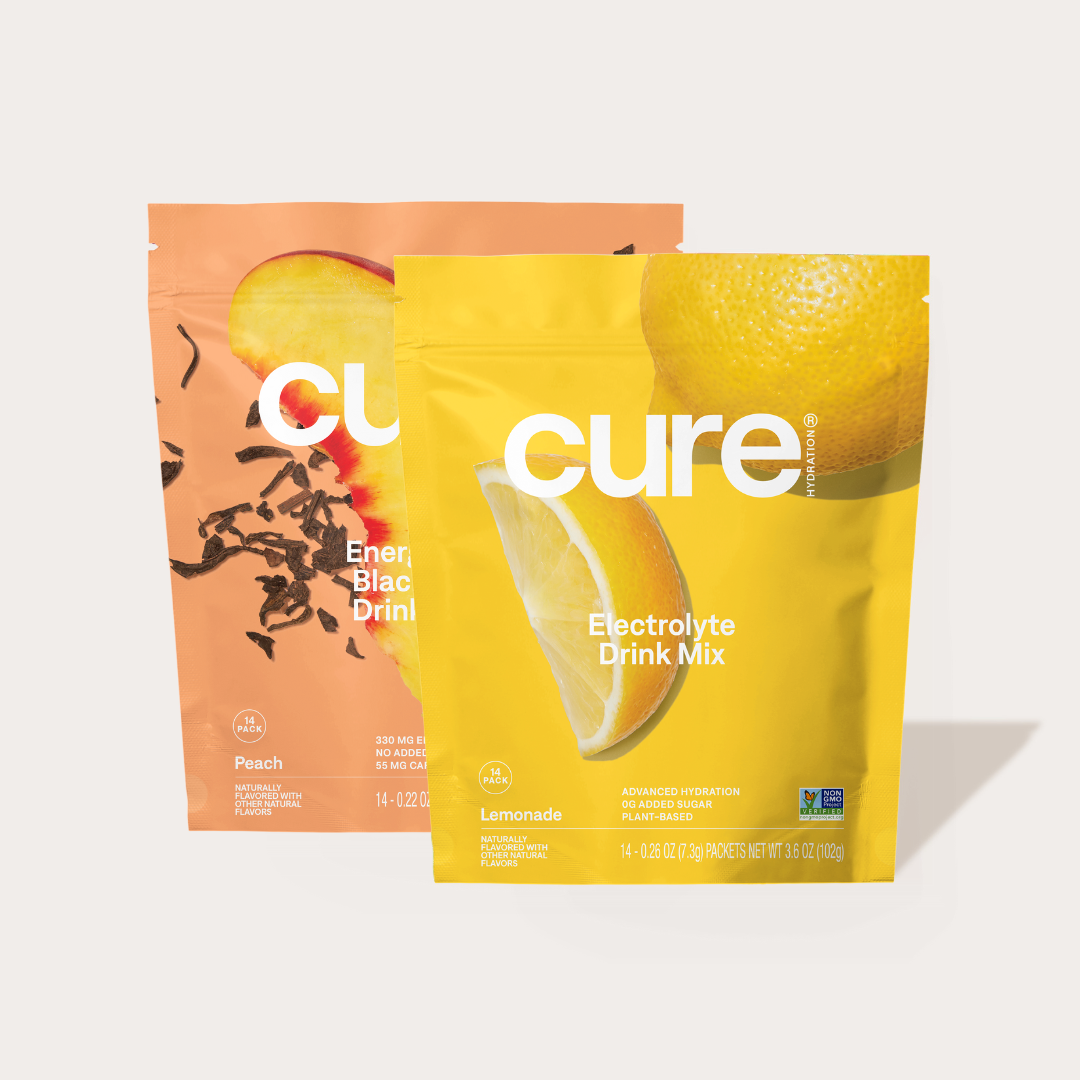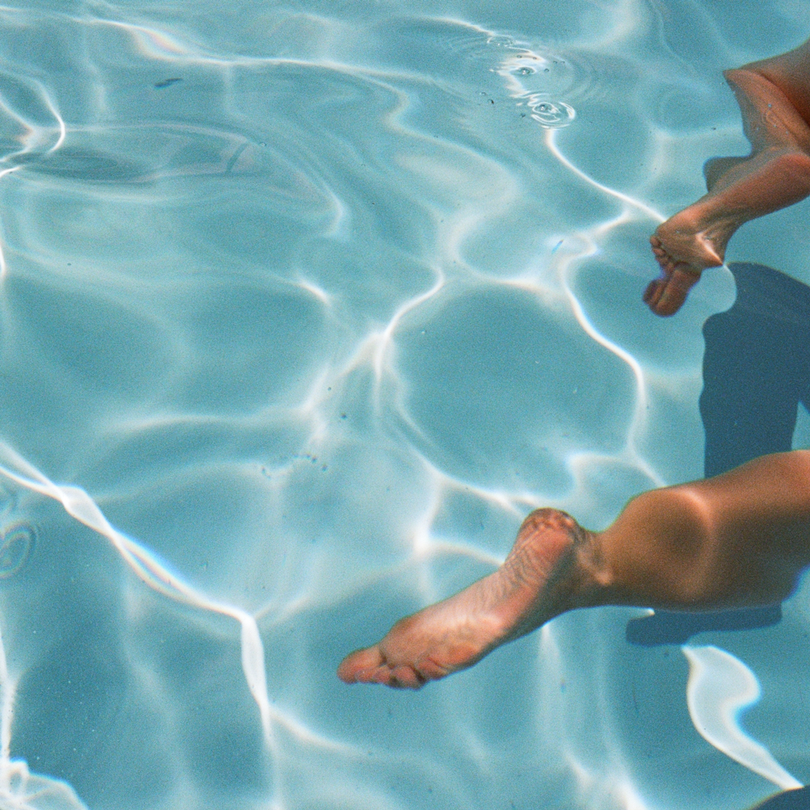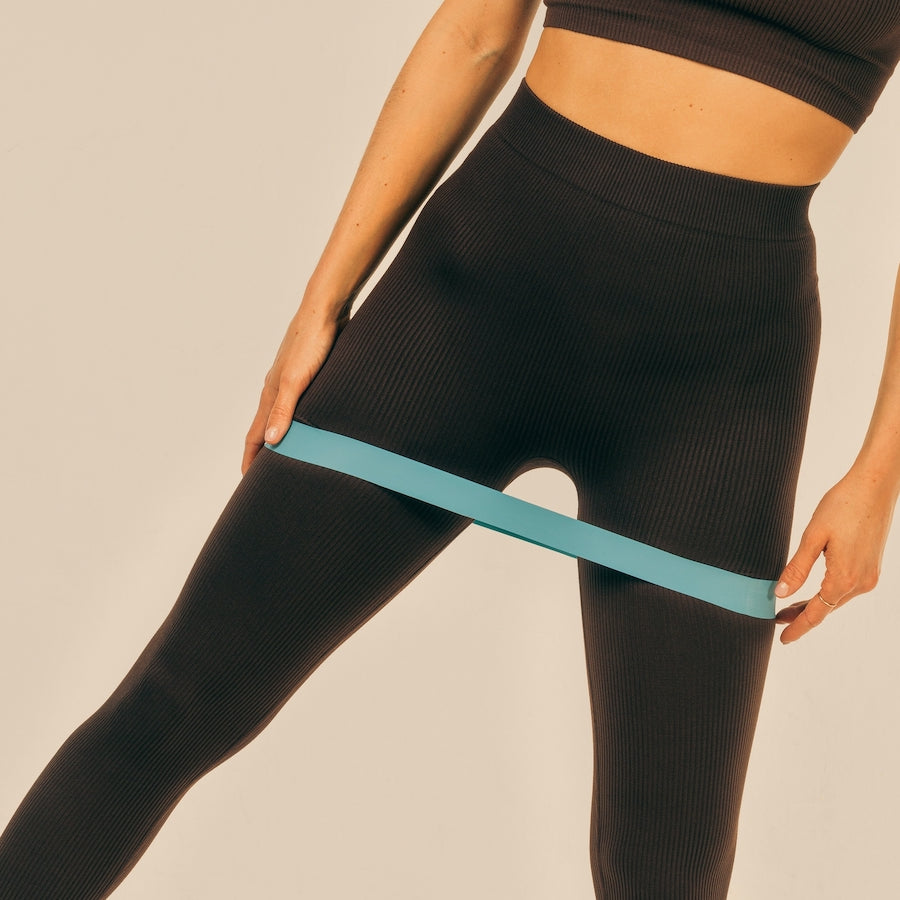In this article:
- Your Mouth Is Dry
- You Feel Dizzy and Light-Headed
- You Feel Tired
- You Have Dark-Colored Urine
- Your Skin Feels Dry
- How To Hydrate Fast

At Cure, we believe that every part of your body is impacted by dehydration, which is why it’s important to maintain your fluid and electrolyte intake.
Maintaining your fluid and electrolyte balance is essential to your health and well-being. Staying hydrated helps regulate body temperature, deliver nutrients to your cells, keep your joints well-lubricated, and basically ensure that every part of your body is working properly.
We may think that being dehydrated is as small as having a dry mouth, but dehydration is actually associated with many digestive, circulatory, and even neurological problems! But why is this the case?

Basically, dehydration happens when you lose more water than you take in. However, there’s much more to it than water. Along with the H2O, when you’re dehydrated, you also lose important electrolytes, such as sodium and potassium. These are minerals that have an electric charge and help regulate all kinds of processes inside and outside your body’s cells.
Of course, sweating too much, especially when you’re exercising, can cause dehydration. But other unlikely causes can include being out in the sun for too long, being at a high altitude, and even simply forgetting to drink water!
For this reason, it’s super important to check in with your body for any signs of dehydration. There can be many signs that you’re dehydrated, but let's look at a list of the top five signs that can tell you if you need to up your fluid and electrolyte intake.
Your Mouth Is Dry
Some underlying health conditions can also lead to your mouth getting dry. And of course, feeling nervous — something we’ve all experienced at some point — can also lead to this.
So how do you know that your dry mouth is a symptom of dehydration? Well, the difference lies in how much it persists. If you’re dehydrated, then your mouth should begin to return to its normal state shortly after you ramp up your intake of fluids and electrolytes. If your dry mouth persists after drinking water and replenishing your electrolytes, visit your doctor to determine its underlying cause.
You Feel Dizzy and Light-Headed
These signs may not actually feel as intuitive, but they are incredibly common for those not getting enough fluids and electrolytes.
Basically, when you’re dehydrated, your body doesn’t have enough fluids to function properly. This can lead to your blood pressure dropping. Because your blood carries important nutrients and oxygen to your brain, when your blood pressure drops, your brain starts receiving less oxygen. This can lead to you getting dizzy.
The way your heart works can contribute to this, as well. As the volume of blood that is circulating in your body drops, your heart will try to compensate by pumping blood more quickly (leading to a faster heartbeat). Because it’s more difficult for your heart to pump blood when you’re standing upright, dizziness signals to your body that you need to sit or lie down.
Most of the time, the type of dizziness you experience is similar to feeling light-headed. In extreme cases, it’s even possible to pass out. But when it comes to mild and moderate dehydration, feeling light-headed is a lot more common.
You Feel Tired
Just like dry mouth, fatigue can have many, many causes that have nothing to do with your fluid and electrolyte intake. You probably know not getting enough sleep or not eating enough can lead to you feeling tired.
But when you’re tired, you’re less likely to attribute it to fatigue and to probably head to grab another cup of coffee. Coffee and other caffeinated drinks are diuretics, which means they increase how often you urinate. This makes your dehydration even worse!
For this reason, it’s important to understand how dehydration can lead to lower energy levels.
As we mentioned above, your blood pressure drops when you’re dehydrated. This means less oxygen and nutrients are getting delivered to your brain. This can cause feelings of sleepiness.
In addition, because your heart is working overtime to deliver nutrients, oxygen, and fluids to different parts of your body, it’s expending a lot more energy than usual, which also leads to you having less energy.
Not only that, but dehydration can affect your sleep, too! Even if you are getting the number of hours that your body needs, dehydration can lead to muscle spasms that disrupt your sleep and make you less likely to feel rested when you wake up.
But the relation between dehydration and sleep can go in the opposite direction, too. When you’re dehydrated, you get less sleep. But when you get less sleep, that leads to more dehydration! That’s because poor sleep inhibits the release of vasopressin, which is a hormone that regulates the fluid and electrolyte balance in your body, making you feel even more tired.
You can help combat this vicious cycle by staying hydrated to support restful, regular sleep.
You Have Dark-Colored Urine
Although this probably isn’t something that we monitor constantly, the color of urine is a good indicator of our hydration levels.
In general, urine ranges in color from pale yellow to deep amber. This is the result of several pigments in your urine (called urochrome and urobilin). Generally, the darker the color of your urine, the more concentration there is of this pigment.
Fluids dilute the pigment and make your urine a lighter color. You may have noticed that the color can vary throughout the day, which is totally normal.
However, while the color of your urine can change throughout the day, it’s still important to make sure it doesn’t get too dark. As a rule of thumb, colors that range from clear to light yellow are signs that you are well-hydrated. If you notice that it starts to become a darker yellow or even turn amber, then you are very likely to be dehydrated.
Certain vitamins, medications, and supplements such as vitamin B and vitamin C can also cause changes in the color of urine, such as excess amounts of vitamin B turning urine neon yellow. Look at the specific color of your urine to determine whether it is a sign of dehydration, and don’t forget to consider alternate explanations.
Your Skin Feels Dry

Just like many of the symptoms that we covered above, dry skin can be caused by many issues unrelated to dehydration. Usually, dry skin is the result of your body producing too little oil.
However, this is where it gets a little tricky because skin that’s dry because of too little oil and skin that’s dry from dehydration have the same exact symptoms: flakiness, tightness, and an uneven complexion.
So, how do you know that your skin is dry because you’re low on fluids? Well, the first sign is that other parts of your body will be dry, too.
The lips are usually a good indicator of this. Because lips don’t have oil glands like the rest of your body, they don’t naturally produce oil. So, even if your skin is producing too little oil, your lips should be unaffected. But when you’re dehydrated, both your skin and lips will feel the effects.
Another sign of skin dehydration (as opposed to plain-old dryness) is a dull, tired appearance. When your skin is lacking fluids, you can have dark under-eye circles, more pronounced fine lines and wrinkles, and even itchiness.
To check if your skin is really dehydrated, you can pinch a small amount of skin on the back of your hand (or any body part, really). Typically, your skin should snap right back — like a rubber band. But If you notice that it takes a few moments for your skin to come back to where it was before, then it’s very likely that you’re experiencing dehydration.
How To Hydrate Fast
If you feel thirsty or experience any of the above signs, then you are probably already dehydrated. While plain water is a great way to rehydrate, it’s actually not the most effective.
In fact, the World Health Organization (WHO) recommends an oral rehydration solution — a fancy term for a mixture of sodium, potassium, and glucose — as the best way to return to normal.
When electrolytes and glucose are perfectly balanced, you can rehydrate up to three times as fast as with plain water.
For this reason, Cure has taken all the guesswork out of balancing these important nutrients by formulating an electrolyte powder with the right ratio of naturally occurring glucose and potassium from organic coconut water and sodium from premium pink Himalayan salt.
These organic ingredients are filled into individual packets that can be added to your water, even if you’re on the go.
Summary
In general, it’s a good idea to sip your fluids slowly if you’re dehydrated so that you can avoid any nausea or bloating. Other than that, the best way to hydrate fast is to try to get your fluid and electrolyte intake up as quickly as possible.
You may be wondering if there are other signs of dehydration that can tell you if you’re getting enough fluids and electrolytes. The answer is, of course there are! So many parts of your body are impacted by dehydration that it would be impossible to list them all. This is why it’s important to check with your health care provider if you notice that something feels “off.”
But the above signs, whether they occur alone or all together, are a good starting point for you to evaluate your hydration levels and to ramp up your intake of fluids and electrolytes.
With science-backed hydration strategies, you’ll make sure that your body gets all the help it needs to start working as it’s meant to!
Sources:
Acute and Chronic Effects of Hydration Status on Health | Nutrition Reviews
Mild Dehydration, Vasopressin, and the Kidneys | European Journal of Clinical Nutrition

